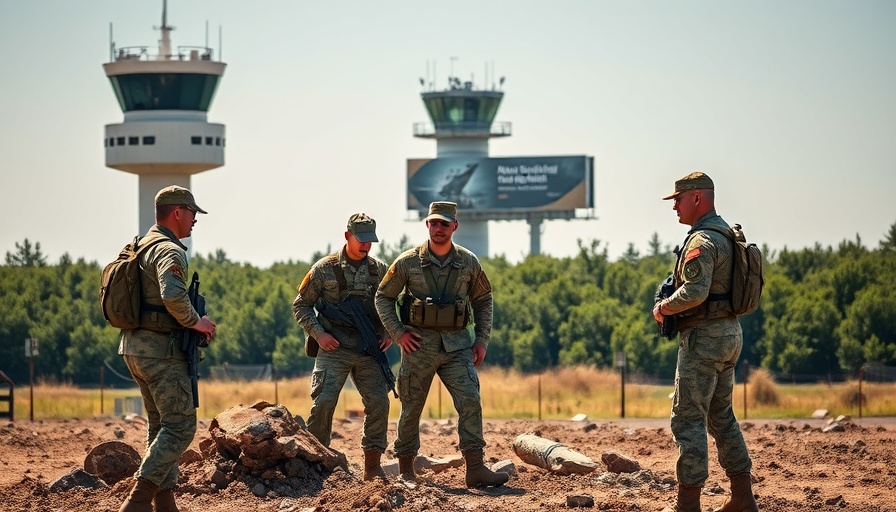
A Tense Moment for Israel Amid Escalating Conflicts
On Sunday, May 4, 2025, a missile fired by Iranian-backed Houthi rebels landed alarmingly close to Ben Gurion Airport, Israel's main international hub. This historic event marked the first missile strike on the airport grounds since the outbreak of war in Gaza began on October 7, 2023. The strike briefly halted flights and caused chaos among travelers. Fortunately, the incident resulted in only minor injuries but underscored the precarious security situation in the region.
The Significance of the Missile Strike
The repercussions of this missile attack came just hours before an important Israeli Cabinet meeting concerning military operations in Gaza. With Israel's army calling up tens of thousands of reservists, the timing raised concerns about an intensifying conflict. The Houthi movement, having consistently voiced support for the Palestinian cause throughout the ongoing war, has escalated its missile attacks against Israel, intensifying fears of broader regional instability.
Airline Responses and Public Safety
Following the missile strike, several international airlines swiftly canceled or postponed their flights. This reaction illustrates how vulnerable civil aviation has become amid regional instability. Following a period of reinstated flights as tensions receded in recent months, this incident serves as a stark reminder of the uncertainties surrounding travel to Israel, as conflicts continue to unfold in the region.
Broader Implications for Middle Eastern Dynamics
Houthi spokesman Brig. Gen. Yahya Saree claimed that the attack involved a hypersonic ballistic missile, showcasing technological advancements in warfare capabilities among non-state actors. Such developments not only compel Israel to reassess its defense strategies but also spark widespread debates concerning the nature of military engagements in a fragmented Middle Eastern landscape.
The International Community's Response
This missile attack highlights the urgent need for international diplomatic efforts to stabilize the region. Global leaders have expressed concern over the escalating violence and its potential implications for broader geopolitical relations. The United Nations and various countries have issued calls for restraint and dialogue, emphasizing that diplomatic solutions are essential in preventing further deterioration of the situation.
Looking Ahead: What Happens Next?
The upcoming days will be critical as Israeli officials continue to discuss potential military actions in response to the ongoing threats. The emotional toll on the public is palpable; people across Israel are left reeling from the panic and tension surrounding these events. As decisions are made, the insights extracted from this missile incident could illuminate the multitude of path choices available to all parties involved.
In conclusion, while the missile strike was a dramatic moment in the ongoing Israel-Gaza conflict, its ramifications ripple far beyond immediate fears. It encapsulates the complexities of Middle Eastern tensions, especially as they intertwine with global security concerns. With potential military escalations looming and responses playing out in international arenas, it remains essential for communities worldwide to engage with these pressing issues and advocate for peace and stability.
As we watch these developments unfold, we must stay informed and involved in discussions around geopolitical conflicts and their impact on innocent lives. Understanding the nuances of such conflicts enables us to foster dialogue and collective action aimed at peace and security in the region.
 Add Row
Add Row  Add
Add 




 Add Row
Add Row  Add
Add 

Write A Comment